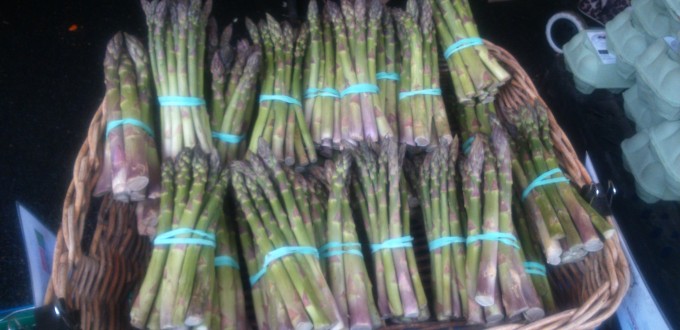Kilo for kilo Asparagus consistently rates as one of top performers of the farm. When it’s in season it sells out. That is, by definition, product demand. As someone who spent countless hours over the past year, propagating, planting, weeding, hoeing and harvesting it fills me with pride and pleasure when folks are excited by and buying our veg. Feeling this way, is enough motivation for me personally to grow it.
In our modern society where a trip to the supermarket can supply you with nearly anything at anytime of the year, Asparagus being one of the few hold outs makes it special. In the south of england, Asparagus season falls in between May and June, an incredibly small harvest season by any standard. Add to this that an Asparagus bed takes four years tending before a first cropping can be expected and it isn’t difficult to see why it is likely to stay a seasonal veg.
After the last harvest in June the plant is allowed to grow to its full potential, the delicate spears transform into beautiful branches and in the late summer and early fall it’s tiny spherical fruits ripen to a deep shade of garnet as the stocks die back transforming to a brittle stand of golden beige. It’s a this stage in the first weeks of December that we put the Asparagus beds “to bed.”
Before the dry stocks are cut back, we weed the bed a final time. Keeping the dry stocks in situ while doing this allows us to easily estimate where on the bed it is safe to dig. The next years growth of asparagus spears are dependent on their crowns sitting just below the surface of the soil and digging weeds too close to them can inadvertently cause damage.


